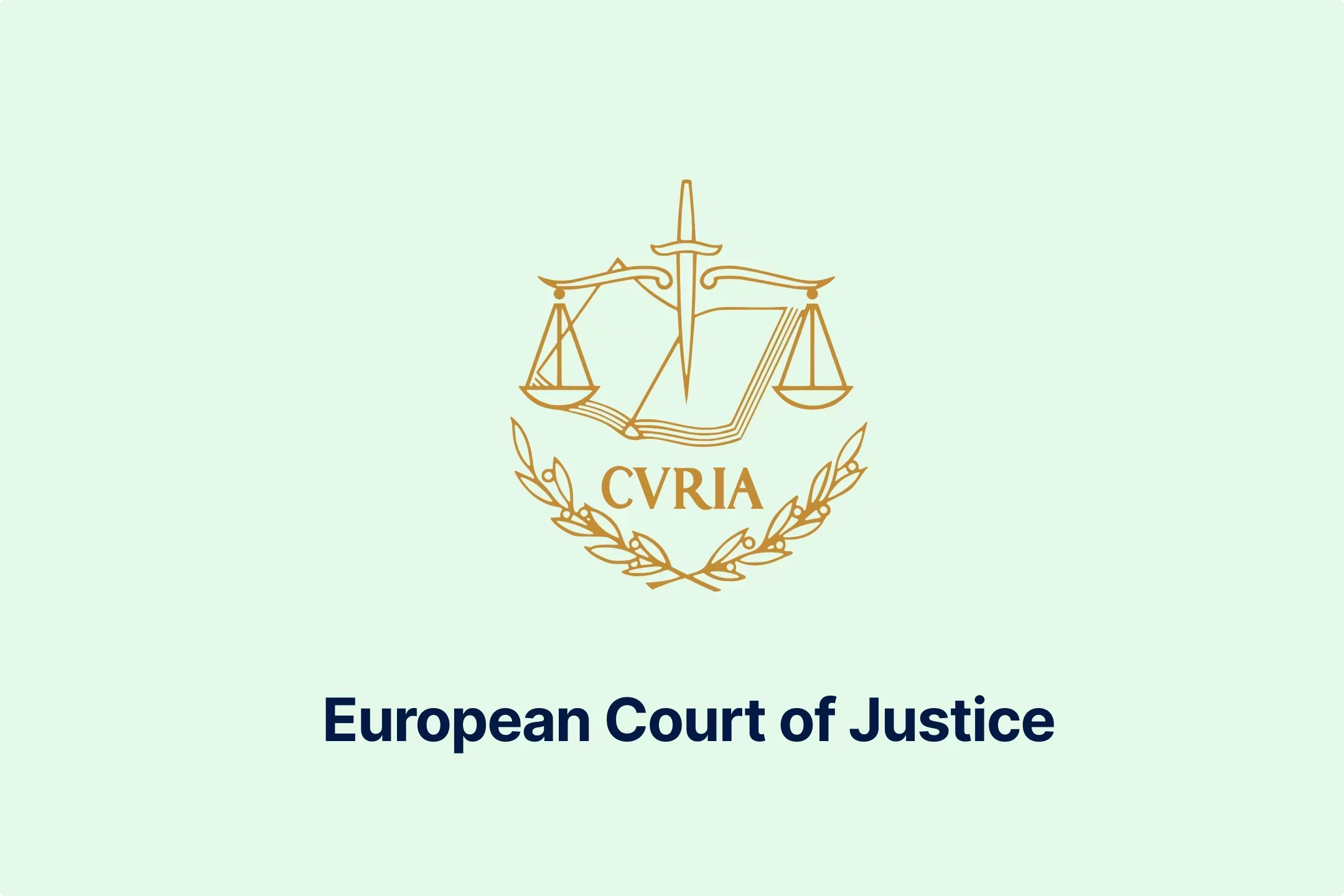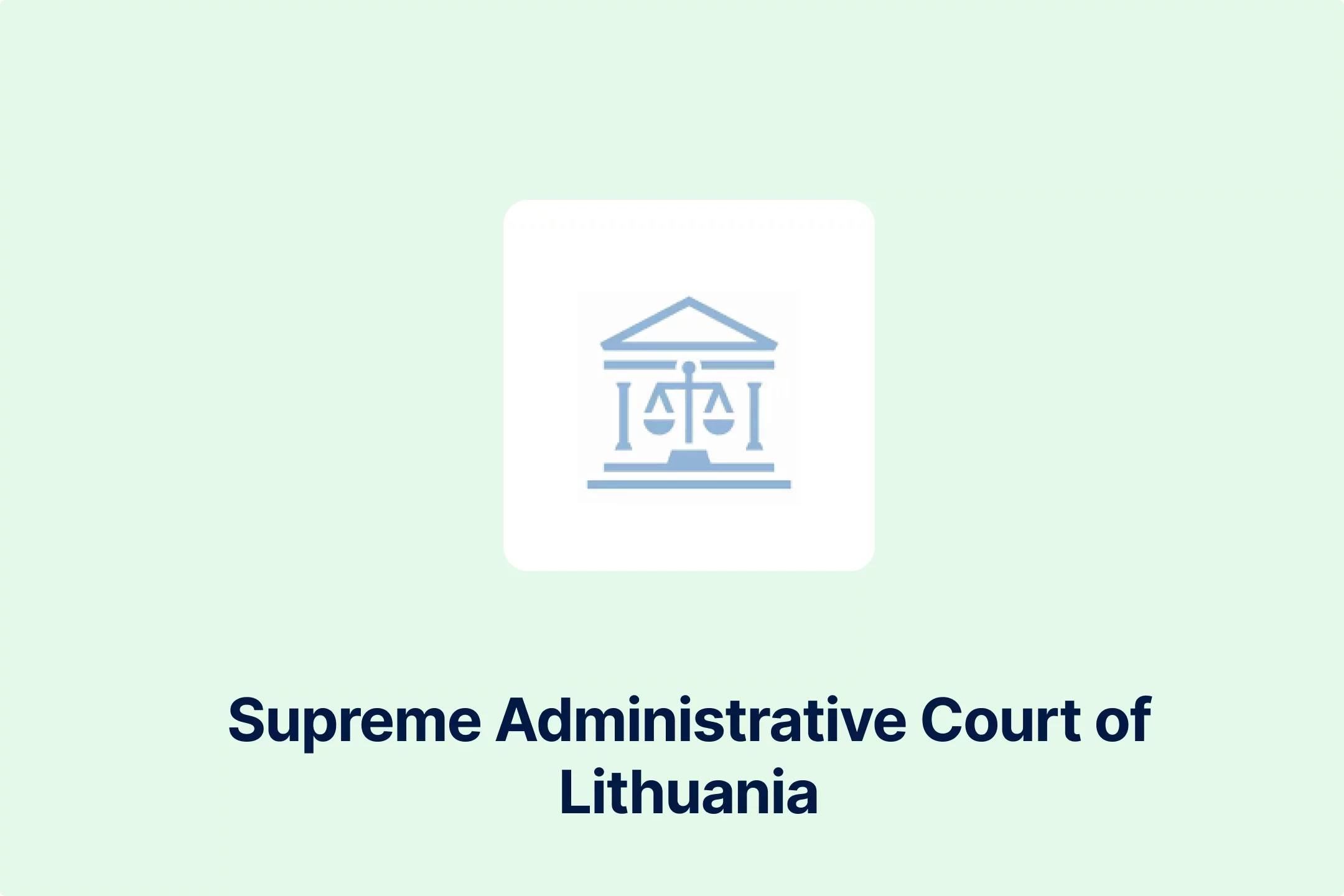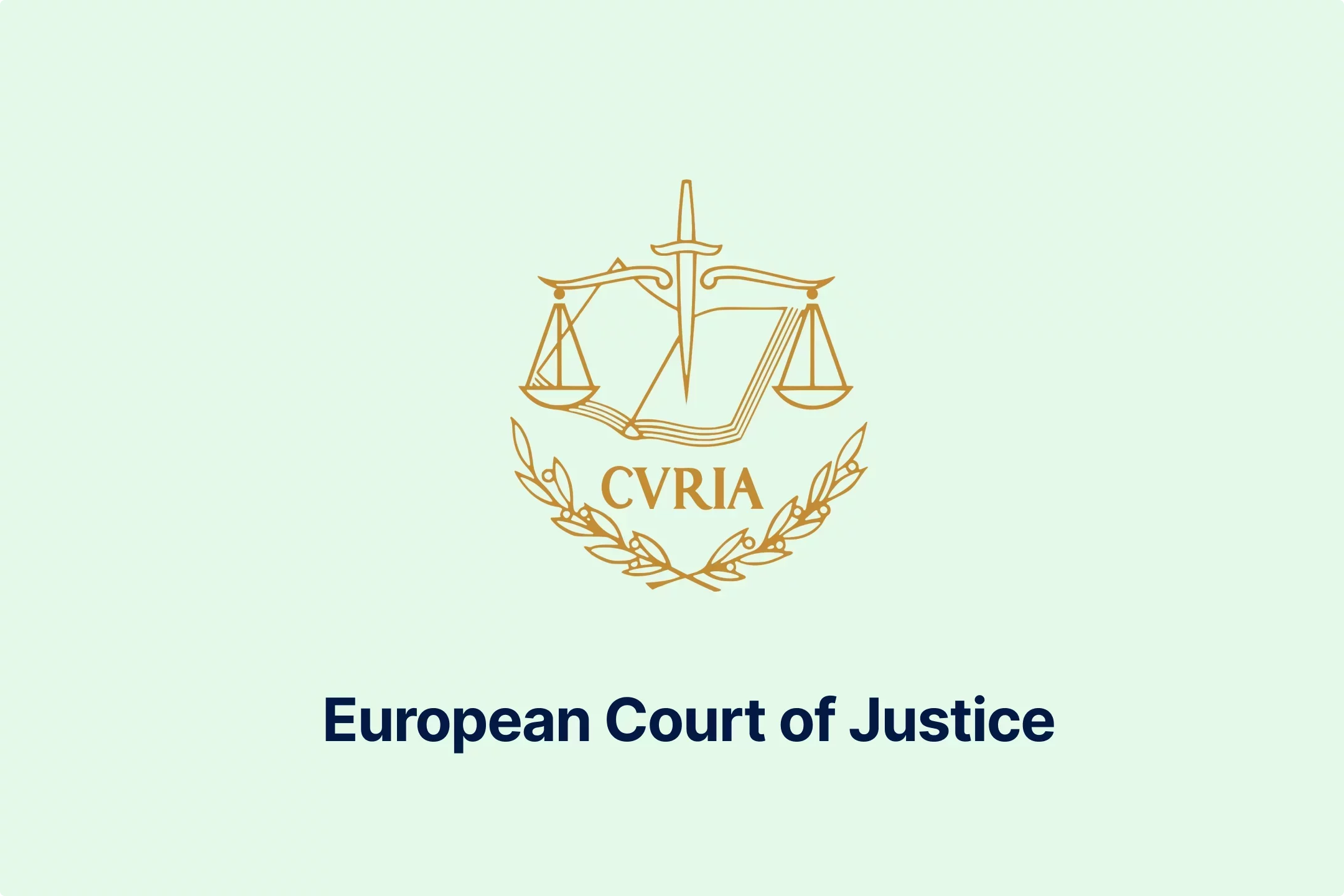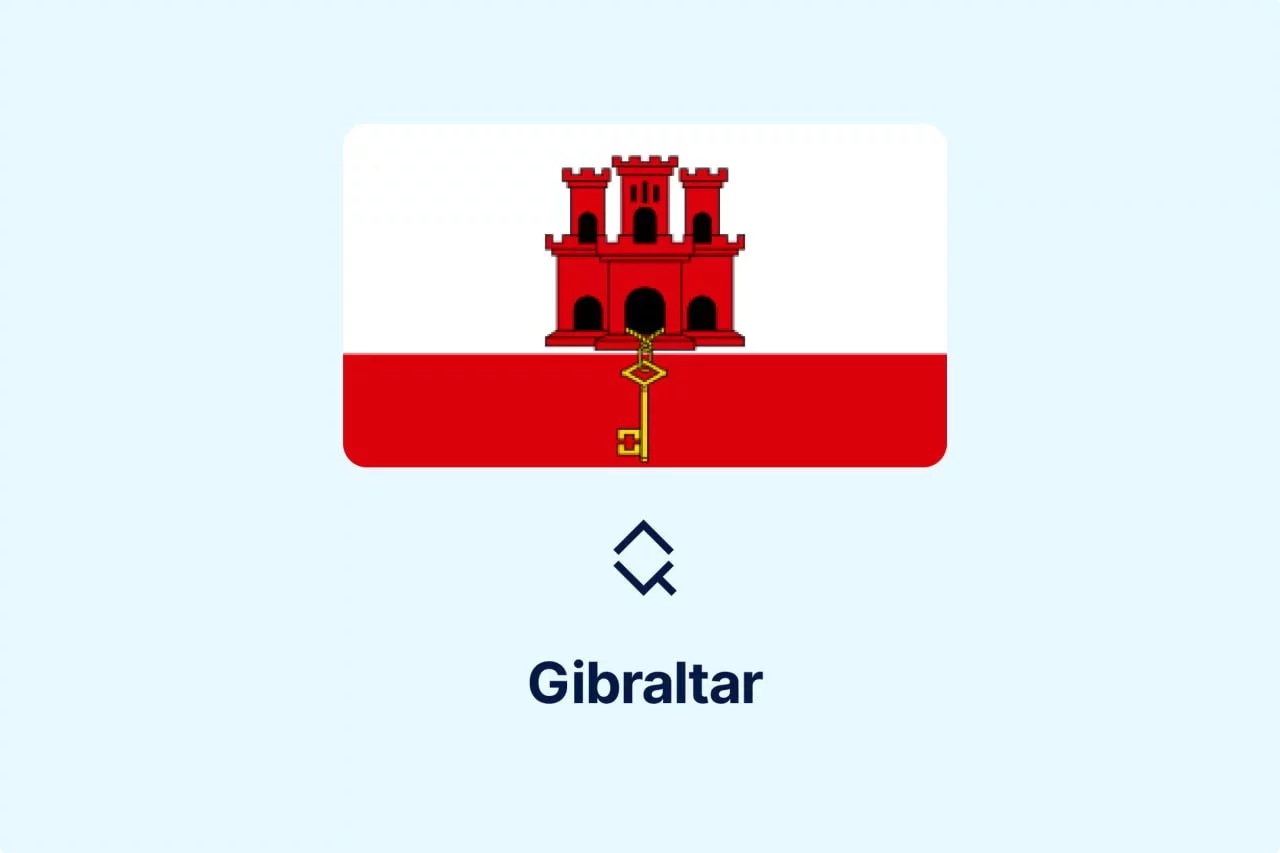Clarification de l'arrêt de la CJCE sur les biens réimportés et l'exonération de la TVA

L'affaire C-125/24 entre AA, propriétaire de chevaux utilisés dans des compétitions internationales, et l'autorité douanière suédoise concerne la réimportation dans l'UE de biens précédemment exportés en dehors de l'UE.
La question clé dans cette affaire est de savoir si AA peut bénéficier de l'exonération de la TVA en vertu de l'article 143, paragraphe 1, point e), de la directive TVA de l'UE sans remplir certaines formalités douanières qui sont essentielles pour que l'exonération de la TVA s'applique. En plus de ne pas permettre l'application de l'exonération de la taxe, les douanes suédoises ont imposé une responsabilité en matière de TVA à AA pour ne pas avoir respecté les règles et réglementations douanières.
Contexte de l'affaire
AA a exporté deux chevaux vers la Norvège et les a ensuite réimportés dans l'UE par un poste-frontière suédois-norvégien. Cependant, AA n'a pas présenté les chevaux aux fonctionnaires des douanes lors de leur réintroduction. Bien que cette omission de présenter les chevaux aux douaniers n'ait pas entraîné l'application de droits d'importation à AA, l'autorité douanière suédoise a imposé une TVA de 41 178 SEK (environ 3 750 EUR).
La raison principale de cette décision est que la loi suédoise n'autorise pas l'exonération de la TVA sur les biens réimportés. En outre, pour que l'exonération soit applicable, les biens doivent être déclarés pour la mise en libre pratique et l'assujetti doit en faire la demande. Considérant qu'AA n'a pas pris ces mesures, l'autorité douanière a refusé l'exonération de la TVA.
Le tribunal administratif de Karlstad a rejeté le recours d'AA contre la décision de l'autorité douanière suédoise, en déclarant qu'AA n'ayant pas présenté de chevaux aux autorités, la dette douanière était née, ce qui entraînait l'assujettissement à la TVA. Le tribunal administratif a souligné que deux conditions doivent être remplies pour que l'exonération de la TVA s'applique, ce que AA n'a pas fait.
AA et le représentant général de l'autorité douanière ont fait appel de la décision auprès de la cour administrative d'appel de Göteborg, en demandant l'annulation de la taxe sur la valeur ajoutée. Cependant, les deux appels ont été rejetés, ce qui a conduit AA à se pourvoir devant la Cour administrative suprême de Suède.
La Cour administrative suprême avait des doutes sur la manière d'interpréter l'article 86, paragraphe 6, du code des douanes de l'UE à la lumière des actions d'AA. Plus précisément, la Cour administrative suprême n'était pas certaine que le fait que l'AA n'ait pas présenté les chevaux à la douane et n'ait pas fait de déclaration ou demandé une exonération des droits de douane lors de la réimportation ait une incidence sur l'exonération de la TVA. La Cour a noté que l'article 86, paragraphe 6, permet une exonération des droits d'importation, même lorsqu'une dette douanière naît en vertu de l'article 79 en raison de la non-présentation des marchandises, à condition que cette non-présentation n'ait pas été trompeuse.
De ce point de vue, la Cour administrative suprême avait d'autres doutes sur la manière d'interpréter ces règles dans la législation suédoise, qui exige que les deux conditions soient remplies pour que l'exonération de la TVA s'applique. Elle a donc décidé de suspendre la procédure et de poser une question préjudicielle à la Cour de justice des Communautés européennes (CJCE).
Principales questions de la demande de décision
La Cour administrative suprême a soulevé la question de savoir si, dans les cas où une dette douanière naît en vertu de l'article 79 du code des douanes de l'UE en raison de la non-présentation des marchandises lors de la réimportation, l'exonération des droits à l'importation, et donc l'exonération de la TVA en vertu de l'article 143, paragraphe 1, point e), de la directive TVA, exige le respect intégral des conditions de fond et de procédure énoncées à l'article 203 du code des douanes.
En d'autres termes, il s'agit de savoir si l'exonération de TVA doit être interprétée de manière restrictive, c'est-à-dire qu'elle ne s'applique que si toutes les conditions formelles sont remplies, ou si elle peut s'appliquer en dépit de lacunes procédurales.
Article applicable de la directive TVA de l'UE
La CJCE a dû interpréter des dispositions clés de la directive TVA de l'UE et du code des douanes pour répondre à la question posée. En ce qui concerne la disposition applicable de la directive TVA de l'UE, la CJCE a mis en évidence les articles 2(1), 30, 70, 71(2), et 143(1).
Ces articles expliquent quelles sont les opérations soumises à la TVA, y compris l'importation de biens, ce que signifie l'importation de biens, à quel moment l'importation de biens devient imposable, et que les pays de l'UE doivent exonérer de la TVA la réimportation de biens par la même personne que celle qui les a exportés à l'origine, à condition que les biens soient renvoyés dans le même état et qu'ils soient exonérés de droits de douane, respectivement.
En ce qui concerne le code des douanes, la CJCE a noté que le considérant 38 oblige les autorités nationales à tenir compte de la bonne foi et à minimiser l'impact de la négligence. En vertu de l'article 139, les marchandises entrant dans l'UE doivent être présentées à la douane, faute de quoi une dette douanière, telle que définie à l'article 79, peut en résulter. En outre, l'article 86, paragraphe 6, permet l'exonération des droits de douane, et donc de la TVA, même en cas de naissance d'une dette, à condition que le manquement n'ait pas été trompeur.
En outre, l'article 203 prévoit une exonération pour les marchandises réimportées si elles sont renvoyées dans un délai de trois ans, déclarées pour la mise en libre pratique et dans le même état que celui dans lequel elles ont été exportées. Tous ces éléments doivent être étayés par des documents valables et exacts.
Règles nationales de la Suède en matière de TVA
En ce qui concerne les règles nationales en matière de TVA, la CJCE a souligné le chapitre 1, paragraphe 1.3, le chapitre 2, paragraphe 1a, et le chapitre 3, paragraphe 30 de la loi suédoise sur la TVA. Ces dispositions stipulent que la TVA est due sur les biens importés dans le pays, définissent l'importation comme le fait d'introduire en Suède des biens provenant de l'extérieur de l'UE et fixent les règles d'exonération de la TVA.
Outre l'article de la loi sur la TVA, la CJCE a également noté que la loi suédoise sur l'exonération de la taxe à l'importation stipule que les marchandises de l'Union réimportées en Suède par l'exportateur initial, sans avoir été modifiées, sont exonérées de la taxe si elles bénéficient d'une exonération des droits de douane en vertu des articles 203 à 205 du code des douanes de l'Union européenne.
Importance de l'affaire pour les assujettis
Le non-respect des règles et réglementations en matière de TVA et de douane entraîne souvent des pénalités, des intérêts et des contrôles. Par conséquent, l'importance de cette affaire pour les assujettis réside dans les éclaircissements apportés sur la manière dont le non-respect formel affecte le droit à l'exonération de la TVA.
En outre, l'arrêt explique l'interconnexion des règles douanières et de la TVA de l'UE et le fait que le non-respect des exigences formelles n'entraîne pas automatiquement une perte des exonérations de la TVA. En outre, l'arrêt examine les conditions qui doivent être remplies pour que les assujettis puissent continuer à bénéficier de l'exonération de la TVA, même lorsque les conditions formelles ne sont pas remplies.
Analyse des conclusions de la Cour
La CJCE a commencé l'analyse des règles et réglementations applicables en soulignant que, conformément à l'article 143, paragraphe 1, point e), les biens doivent être exonérés lorsqu'ils sont réimportés en l'état par la personne qui les a exportés, à condition que ces biens soient également exonérés de droits de douane.
En outre, la CJCE a souligné qu'il est évident que le législateur de l'UE a intentionnellement lié l'exonération de la TVA aux conditions matérielles et procédurales exactes qui s'appliquent en vertu du code des douanes pour l'exonération des droits de douane sur les biens retournés. Par conséquent, pour que l'exonération de la TVA s'applique, les assujettis doivent respecter les formalités douanières.
En outre, alors que l'article 203 du code des douanes de l'UE autorise la franchise pour les marchandises réimportées si toutes les conditions sont remplies, la Cour de justice des Communautés européennes a noté qu'AA n'avait pas déclaré ses chevaux pour la mise en libre pratique et qu'elle ne les avait pas non plus présentés aux autorités douanières. Le non-respect de ces règles a déclenché une dette douanière, en vertu de l'article 79, paragraphe 1, point a), du code des douanes, qui s'applique lorsque les obligations relatives à l'entrée et à la manutention de marchandises non communautaires dans l'UE ne sont pas remplies.
Néanmoins, l'article 86(6) du Code des douanes de l'UE permet à cette exonération de droits de douane de s'appliquer même lorsqu'une dette douanière survient en raison de manquements aux procédures prévues à l'article 79, tels que la non-présentation des marchandises aux douanes, à condition qu'il n'y ait pas eu de tentative de tromperie.
En outre, la Commission européenne a déclaré que l'article 86, paragraphe 6, est déclenché par le non-respect des exigences. Par conséquent, l'exclusion de ces cas viderait de son sens l'existence de ces dispositions. Ainsi, si l'intention derrière le manquement n'est pas trompeuse, le fait de ne pas présenter les marchandises ou de ne pas les déclarer pour la mainlevée n'annule pas le droit à l'exonération des droits en vertu de l'article 203 lorsque les marchandises sont renvoyées dans l'UE.
Cette affirmation est également renforcée par le considérant 38 du code des douanes, qui souligne l'importance de prendre en considération la bonne foi des personnes qui contractent une dette douanière en raison d'un manquement et appelle à minimiser l'impact de la négligence. Selon cette règle, les assujettis ne devraient pas être empêchés de bénéficier d'une exonération des droits de douane s'ils agissent de bonne foi et ne respectent pas les exigences formelles par négligence. Par conséquent, ces manquements ne peuvent pas bloquer l'exonération de TVA correspondante.
La CJCE ne s'est pas prononcée sur la question de savoir si AA avait agi de manière trompeuse, si la non-conformité était due à une simple négligence ou si elle avait agi de bonne foi, et a laissé à la Cour administrative suprême le soin de trancher ces questions.
Décision finale des tribunaux
Après avoir examiné le libellé et les intentions du législateur au regard des articles interdépendants de la directive TVA de l'UE et du code des douanes, la CJCE a conclu que le non-respect des exigences formelles, telles que la présentation des biens aux douanes ou la déclaration de mise en libre pratique, n'exclut pas le bénéfice de l'exonération de la TVA sur les biens réimportés, pour autant qu'il n'y ait pas eu de tentative de tromperie et que les biens soient renvoyés dans le même état que celui dans lequel ils ont été exportés.
Conclusion
Cette affaire illustre l'interconnexion entre la directive TVA de l'UE et les dispositions du code des douanes, soulignant l'importance de les interpréter conjointement.
En fin de compte, il appartient à la Cour administrative suprême de déterminer si AA a agi de bonne foi et si le non-respect des règles a été causé par négligence ou avec des intentions trompeuses. Supposons qu'elle en reste à son point de vue selon lequel il n'y a pas d'indices d'intentions malhonnêtes. Dans ce cas, AA ne devrait pas être exclue de l'application de l'exonération de la TVA sur les biens réimportés, même si elle n'a pas respecté les exigences formelles.
Source: Affaire C-125/24 - AA contre Représentant Général de l'Autorité Douanière, Directive TVA de l'UE, Code des douanes de l'Union

Articles en vedette

Burkina Faso FEC Facturation électronique obligatoire à partir de juillet 2026
🕝 February 24, 2026
Réforme de la TVA au Mozambique : biens et services numériques à partir de 2026
🕝 February 17, 2026
Disparition de commerçants et fraude à la TVA : décision de justice en Lituanie
🕝 February 9, 2026
Formation continue en fiscalité et comptabilité : constituer des équipes pour un avenir plus rapide
🕝 January 27, 2026Plus de nouvelles de L'Europe
Obtenez des mises à jour en temps réel et des informations sur l'évolution de la situation dans le monde entier, afin d'être informé et préparé.
-e9lcpxl5nq.webp)

-zzrhegqsyq.webp)

-ulcnia30z1.webp)



-3rcczziozt.webp)

-rvskhoqpms.webp)




-a5mkrjbira.webp)

-ivkzc1pwr4.webp)




-hssrwb5osg.webp)



-c06xa1wopr.webp)









-webajrr4ny.webp)
-evibmwdwcn.webp)
-7acdre0hop.webp)

-lcgcyghaer.webp)
-ol6mdkdowg.webp)
-aqdwtmzhkd.webp)

-njgdvdxe2u.webp)



-i6rki3jbad.webp)
-hdwgtama05.webp)

-atbhy5fyxv.webp)






-zp2n6zixoa.webp)
-oa1ynbm4sn.webp)


-lltkno6txy.webp)



-do38odrqnq.webp)

-t409oldqzt.webp)

-hordopb6xh.webp)

-ooimnrbete.webp)

-lwb5qpsily.webp)


-eumafizrhm.webp)

-mtqp3va9gb.webp)

-3ewrn1yvfa.webp)
-591j35flz2.webp)

-huj3cam1de.webp)


-hafis0ii23.webp)

-qseaw5zmcy.webp)



-qzsah2ifqx.webp)


-69rzooghib.webp)
-wrvng98m0g.webp)


-psucycuxh2.webp)
-klyo8bn5lc.webp)




-6wv5h5eyyd.webp)
-tfgg78rbid.webp)
-a6jpv9ny8v.webp)
-qhdbapy0qr.webp)


-owvu7zoc13.webp)


-h28jrh1ukm.webp)

-wl9bl1rw3a.webp)

-2w76jtvtuk.webp)

-c0uvrmrq9j.webp)



-pofe7ucwz3.webp)



-5cc23ezxyf.webp)
-rrmabbekeb.webp)








-iyyeiabtaf.webp)
-c8rbjkcs01.webp)
-nilkffjhah.webp)

-hikakq55ae.webp)

-z1d60bldtg.webp)
-d1a0q6n7mp.webp)
-viip8nvoeh.webp)
-bvv1otliox.webp)



-de8hdb1bn3.webp)
-7xsxxoypnx.webp)

-cm0opezg73.webp)
-0tovsdupmi.webp)
-subxdamdj6.webp)

-gly6ablwnh.webp)
-gkduqhwbzh.webp)
-qpe1ld9vcj.webp)
-8noukwsmba.webp)
-aka29tuhkt.webp)


-fisvs27yrp.webp)


-mp0jakanyb.webp)

-aivzsuryuq.webp)



-o7f4ogsy06.webp)

-zjja92wdje.webp)
-hrbhdts8ry.webp)
-qtdkwpgkug.webp)


-cf8ccgah0p.webp)
-0em3cif5s6.webp)






-ptzesl0kij.webp)

-tfzv42pyms.webp)







-uodv7sfbih.webp)
-bbrdfmm9qf.webp)



-m2tl8crfqr.webp)




-1awbqjgpjs.webp)
-avbjsn1k1g.webp)


-0h8ohkx6s0.webp)



-wfmqhtc7i6.webp)
-7wljbof2zo.webp)

-eqt97uyekl.webp)
-wzw9mcf563.webp)

-z4oxr6i0zd.webp)




-l0zcrrzvhb.webp)
-fhtic1pwml.webp)

-iipdguuz9p.webp)
-nkhhwrnggm.webp)
-pltqwerr3w.webp)

-nn6mtfbneq.webp)

-tmnklelfku.webp)



-8z1msbdibu.webp)
-7g16lgggrv.webp)



-lxcwgtzitc.webp)
-9mc55kqwtx.webp)


-xla7j3cxwz.webp)
-jrdryw2eil.webp)






-t9qr49xs2u.webp)


-qjopq5jplv.webp)



-vune1zdqex.webp)

-qsozqjwle2.webp)
-rgjta7iwiv.webp)

-zb6bxxws47.webp)
-lyfjzw4okp.webp)

-ogpfmol5m1.png)


-czisebympl.png)

-zetvivc79v.png)
-ud7ylvkade.png)
-qizq6w2v5z.png)







-ihr6b4mpo1.webp)
-k1j4au0ph6.webp)
-swxxcatugi.webp)


-ig9tutqopw.webp)

-tauoa6ziym.webp)

-spr0wydvvg.webp)

-xfuognajem.webp)





-u2nv5luoqc.webp)








-opuxpan2iu.webp)




-kwttsfd8ow.webp)
-8u14qi10nj.webp)

-wjpr96aq5g.webp)

.png)

.png)


.png)


.png)



.png)
.png)
.png)
.png)
.png)

.png)
.png)




.png)
.png)




































































































































